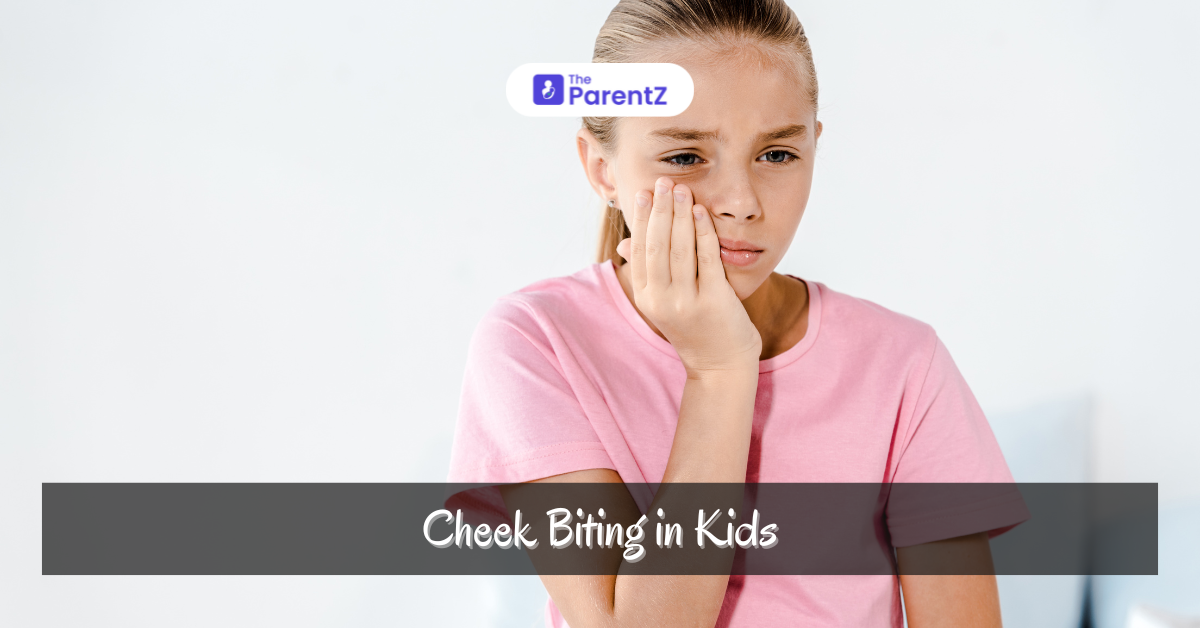Cheek biting in kids is a surprisingly common issue that many parents may overlook or dismiss as a harmless habit. However, this repetitive action can lead to several oral health problems and cause discomfort for the child. Whether it's a response to stress, a result of misaligned teeth, or simply an unintentional habit, cheek biting should be addressed promptly to avoid long-term complications. Understanding the root causes, identifying the signs, and knowing how to prevent it are essential for parents to ensure their child's oral health and overall well-being.
Causes of Cheek Biting
1. Habitual Chewing: Often, children bite their cheeks out of habit, especially when anxious, bored, or focusing on something else. This habit can develop over time without them realizing it.
2. Dental Misalignment: Misaligned teeth, particularly when the upper and lower teeth don't meet correctly, can cause a child to unintentionally bite the inside of their cheeks while talking or chewing.
3. Stress and Anxiety: Emotional distress can manifest physically, and in children, cheek biting may be a coping mechanism for dealing with stress or anxiety.
4. Attention-Seeking Behavior: Some children may resort to cheek biting for attention, especially if they notice that it elicits concern or a response from parents or caregivers.
Effects of Cheek Biting
1. Tissue Damage: Repeated cheek biting can lead to ulcers, sores, and damage to the delicate tissue inside the mouth. If left untreated, these can become infected or develop into more serious conditions.
2. Pain and Discomfort: Constant cheek biting causes irritation, swelling, and pain, making it uncomfortable for children to eat, speak, or smile normally.
3. Oral Health Complications: Prolonged cheek biting can negatively affect a child’s oral hygiene. Bacteria from food particles can enter the wounded area, leading to infections or even dental cavities.
4. Social and Emotional Impact: Some children may feel embarrassed or self-conscious about their habit, especially if it leads to visible injuries or if peers notice their behavior. This could affect their confidence and social interactions.
How to Prevent Cheek Biting
1. Dental Checkups and Orthodontic Treatments: If the cheek biting is caused by misaligned teeth, a visit to the dentist or orthodontist is necessary. Braces or other orthodontic devices can correct the alignment and prevent accidental bites.
2. Behavioral Interventions: For children who bite their cheeks out of habit, stress, or boredom, behavioral therapy might be useful. Techniques such as positive reinforcement, relaxation exercises, or mindfulness can help break the cycle of habitual biting.
3. Use of Mouthguards: In severe cases, a dentist may recommend a custom-made mouthguard to protect the inner cheeks while the child is sleeping or during activities that trigger biting.
4. Stress Management: If stress and anxiety are contributing factors, encouraging relaxation activities like yoga, deep breathing, or art therapy can help children manage their emotions more effectively without resorting to harmful habits.
5. Parental Support and Encouragement: It's important for parents to be patient and supportive. Instead of scolding a child for cheek biting, offer gentle reminders and praise when they avoid the behavior.
When to See a Dentist
Parents should consult a dentist if the child experiences persistent cheek biting, especially if it leads to significant tissue damage, pain, or infection. A professional can provide insights on whether the issue is due to a dental misalignment or a behavioral pattern and suggest appropriate interventions.
Conclusion
Cheek biting in kids might seem like a small issue, but it can lead to uncomfortable and painful consequences if not addressed in time. Understanding the underlying causes, from dental misalignment to emotional triggers, is key to helping your child break the habit. With proper dental care, behavioral interventions, and stress management techniques, children can overcome cheek biting and maintain good oral health. Remember, early intervention is the best way to prevent long-term damage and ensure a healthy, pain-free smile for your child.
By addressing the habit early and providing the necessary support, parents can guide their children toward healthier oral habits and overall well-being.





Be the first one to comment on this story.